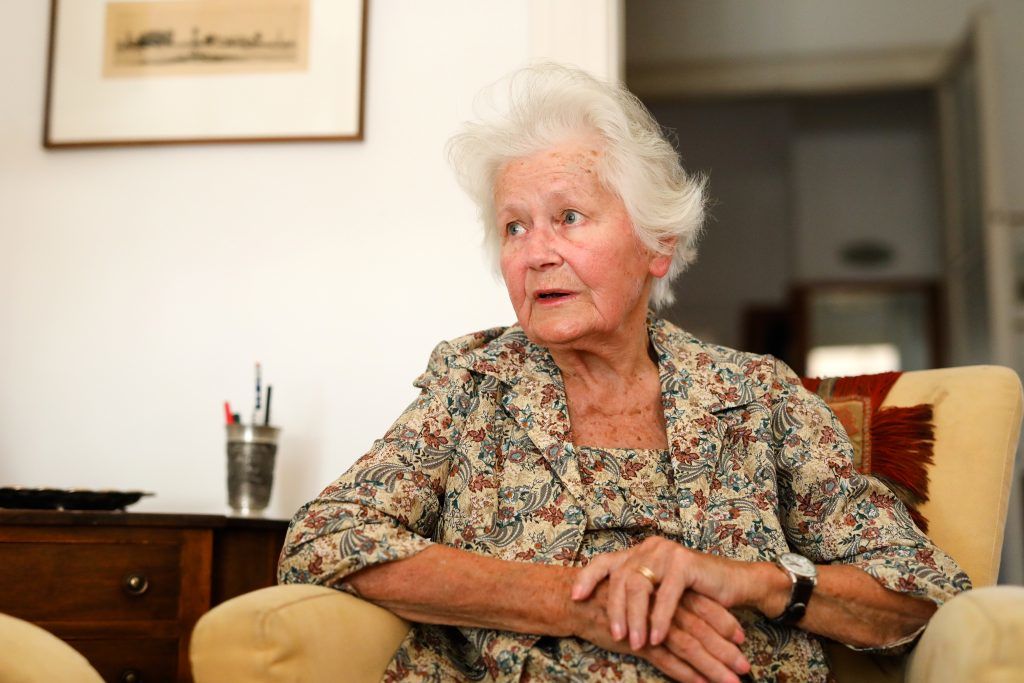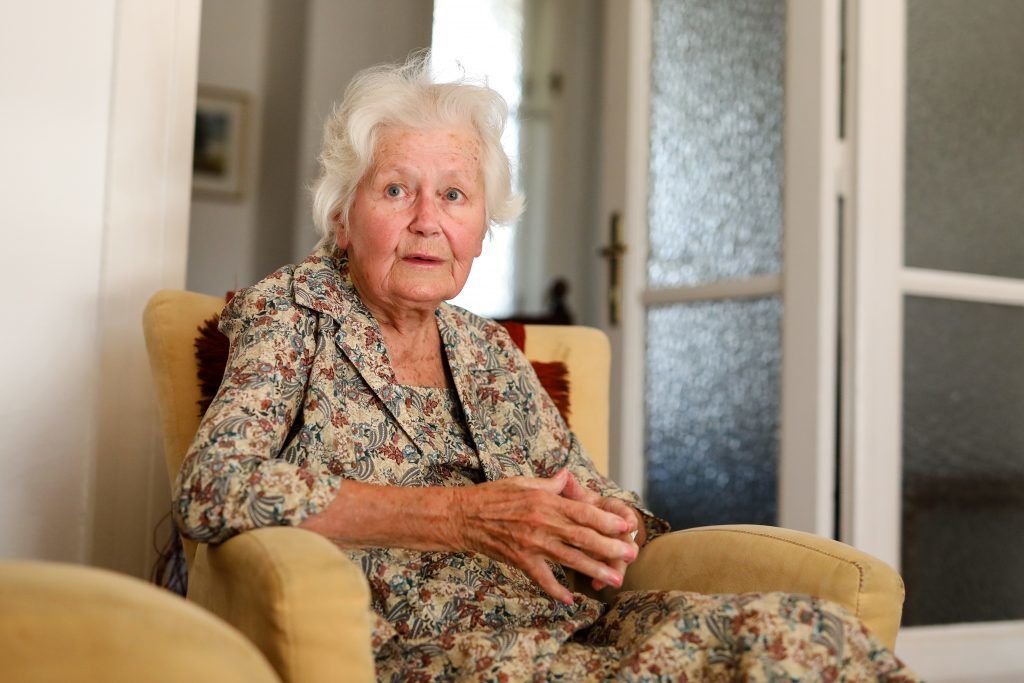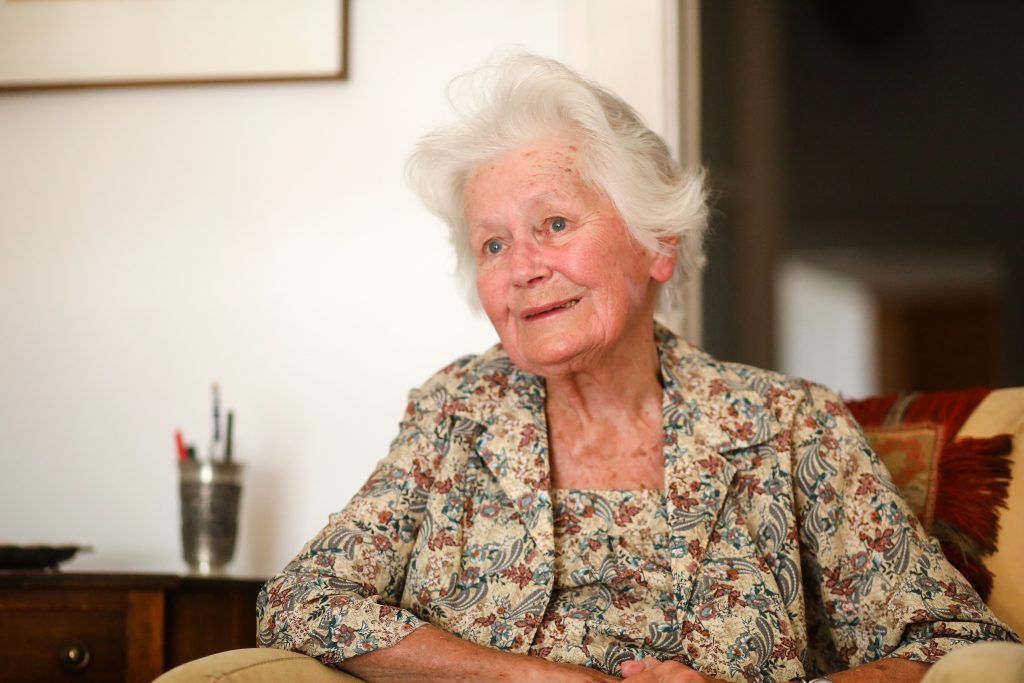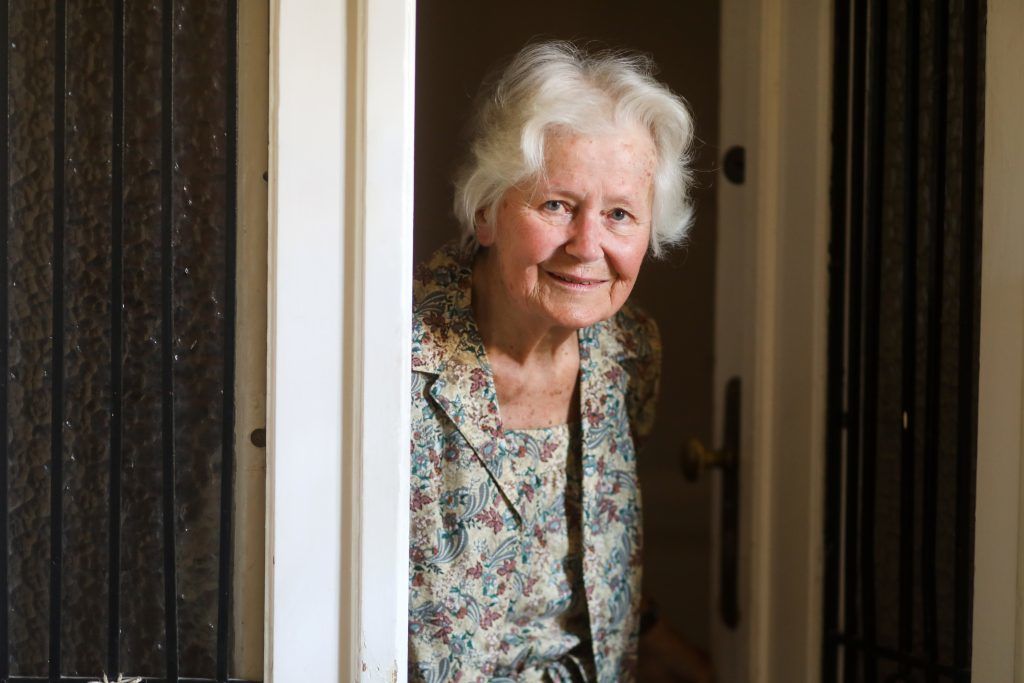
“On a Mission towards Hungary” - Interview with Zsuzsánna Haynalné Kesserű, a Key Member of the Hungarian Diaspora in Argentina
Hungarians have stood their ground all over the world, and they have made themselves liked in Argentina too, says the founder of the Argentinian Hungarian Gazette. However, she emphasized that many in the diaspora unfortunately confuse integration with assimilation.
Zsuzsánna Haynalné Kesserű was only a child when her family left Hungary at the end of the Second World War. Despite initial difficulties, she has become an active and important member of the local Hungarian community in Argentina, and besides her day job, worked as a librarian, publisher, and journalist.
In recognition for her decades of work in supporting Hungarian interests in Argentina, she recently received the ‘Friend of Hungary’ award by the Friends of Hungary Foundation. Interview.
What are your memories of leaving Hungary in 1944?
We left because of the bombings. The three of us and our mother were in Enese (a village 20 kilometers from Győr) at the time (December 1944), while my father was still in Budapest, so he couldn’t come with us at first. But we knew that we wanted to go west.
We had to flee because the Soviet troops were pushing in and Hungary already had bad memories of communism. But the world we were heading to had similarly been in turmoil: bombings everywhere, lots of refugees, and that winter had been unusually harsh too. In the end, we could only go the way where rails weren’t bombed.
How did you get to Argentina?
Switzerland was like an island at the time, and my father had been working in the Foreign Office and had contacts in that country, so that became our first destination.
We were in Switzerland for three and a half years, but my father wasn’t allowed in. That’s how we ended up in Argentina. I was 10 when we arrived.
How did Argentina welcome you?
Argentina, and President Perón in particular, were always very welcoming, regardless of country of origin or other backgrounds. Argentina, like other countries in South America, is an immigrant country. Immigrants arrived according to the historical situation: Jews in the 30s and 40s, and after the war mainly Eastern Europeans: Poles, Hungarians, Slovaks, Romanians, Ukrainians.

It is important to note that Argentina was a very rich country around the time of the war. It exported large quantities of wheat and meat for hard currency to both the fighting Axis powers and the Allies.
How did the integration go?
Although we were generously welcomed, unlike in the Anglo-Saxon countries we didn’t receive any help from the state, so we had to provide everything for ourselves.
As soon as we got off the boat, we were lodged at the ‘Immigrant Hotel,’ from where the heads of families went out daily seeking work. As soon as a job was found to provide for a living, the family could rent an apartment. My father spoke five languages, but he became a factory worker.
As far as our family was concerned, there was always food on the table, but that didn’t mean that we children didn’t have to help.
What did you start doing?
I finished primary and secondary school. Languages were important. In addition to my existing Hungarian, French, and German, I soon learned Spanish, the official language in Argentina. With my French knowledge, I was able to teach a younger child and used the money earned to learn English. Thus, I eventually became a simultaneous interpreter.
How did you become involved in journalism?
Journalism came a lot later. I started off writing articles for the Hungarian newspaper in Argentina in the 70s. I first wrote about my visit to Hungary in 1976. I didn’t write regularly though, only when something caught my attention. During my work, I stumbled upon many topics that interested local Hungarians.

How did you start the Argentinian Hungarian Gazette?
The editor of the Hungarian newspaper grew old and died, and the community was left without a Hungarian-language paper. So, I took on the job and this became the Argentínai Magyar Hírlap (Argentinian Hungarian Gazette).
Gradually it became better-known as we sent it out to other countries, plus to Hungary of course. Interpretation still remained my livelihood, not journalism, but fortunately I had time to do the newspaper as well, and I loved it.
How did you keep the paper going?
Subscribers, a little of my own money, and donations. Fortunately, there were people who deemed it important for the community to have a Hungarian-language newspaper and were willing to donate to the cause.
What caused the newspaper to eventually cease?
Ultimately, it had been going for almost ten years. Unfortunately, I couldn’t keep it up financially- there weren’t enough subscribers. The newer generations didn’t read much while the older ones were dying out.
Since when have a significant number of Hungarians been living in Argentina?
The first Hungarians were expatriated under Franz Joseph. “Húngaro” as a term, by the way, had been pejorative for a long time, because Franz Joseph’s policies sent many Roma out to Argentina with Hungarian passports. As a result, even we were often called “gitanos” (gypsies).
How big is the Hungarian community in Argentina?
Although most sources claim 30-40,000, they include all the descendants, so it’s misleading, as it depends on how you determine who is Hungarian.
I think some 10% of that figure is actually true, knowing the high rate of assimilation, and considering who is still attached to ‘Hungarian-ness:’ who sends their children to Hungarian schools on weekends, who observes the Hungarian holidays, etc.

What are the biggest centers?
Of course, Buenos Aires is the number one center, but there are definitely other hotspots as well: Córdoba, Mendoza, and a relatively poor area in the north, Chaco.
In Buenos Aires, which has 13 million inhabitants, the so-called northern zone is where Hungarians are concentrated, and where most of the social clubs are located. In the greater Buenos Aires area there are Hungarian representatives of the churches, with religious celebrations in Hungarian at the Mindszentynum and services in the Reformed and Lutheran Churches to this day.
How many Hungarian associations are there in Buenos Aires?
The most important is the Hungária Association in Olivos, where the youth go. The scout house is also there, representing the Hungarian Scout Association Abroad. There also is the Zrínyi Youth Circle, where Hungarian language classes are held on weekends. The great traditional “Cserkészbál” is held yearly at the club, with palotás dance, and people dressed in historic Hungarian aristocratic costumes, etc. Then in the southern zone, there is the Valentín Alsina Hungarian Association, but fewer members speak Hungarian there.
What about learning Hungarian?
On Saturdays, there are Hungarian lessons in the aforementioned Hungária club or in the Scout House in the morning, and scouting activity in the afternoon. As time goes by, there are more and more mixed marriages and the Hungarian party often requires children to learn Hungarian. Parents often ask me, “What’s the point of this?” I always explain to them that the phonetic richness of Hungarian also helps them to learn other languages more easily.
However, many people unfortunately confuse integration with assimilation. It is great to integrate, but you don’t have to assimilate; you can remain attached to your own roots and still be absolutely integrated. You can also adjust your mentality, as I have a very different mentality from, for example, the Hungarian one.
How has the attitude of Hungary changed towards the diaspora in the last thirty years?
Obviously, it changed radically after the regime change, as Hungary began to realize that those who left had eventually become ambassadors of Hungary all over the world, and are useful to the motherland. Personally, I feel that we do have a mission towards Hungary and I try to pass on this attitude to my family.
Did many people move back to Hungary recently?
Not many from Argentina. In my case, for example, that would be a second emigration, which I won’t undertake for understandable reasons.
Who are the most famous Hungarians who have contributed to the Argentine culture?
General János Czetz, the 1848 revolutionary who founded the National Military College. To this day, he is still very respected, the Academy commemorates him every year, and they still revere him as a Hungarian.
And then there is László Bíró, the man who invented the ballpoint pen. In Argentina, the ballpoint pen is called ‘birome,’ which comes from his name and that of his fellow German inventor. Many Hungarian physicians are also famous. All in all, I believe that Hungarians have stood their ground all over the world, just as they have made themselves liked in Argentina.

What has the Friends of Hungary Award meant to you?
It came as a big surprise. Although, as I already said, you don’t carry out your activities because you want to be rewarded for them, but because it’s your duty, your dedication, and because you believe in what you are doing.











